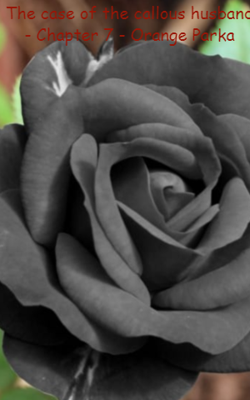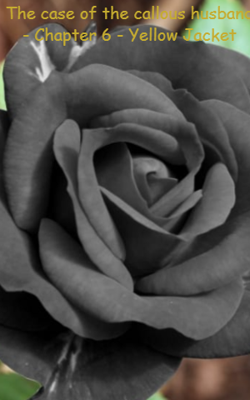The Unblessed Girl
The Unblessed Girl


Kalyani was the only child of her parents. Her father, Ramdas, was a barber by caste and profession. In those times, feudalism persisted, quite palpably, in the village society. I hailed from so called landlord's caste. People said that my great-grandfathers had exploited every possible opportunity to maintain, for generations, their chauvinistic title of “The Landlords”. Our village set-up employed a bunch of people, whose caste defined their very occupation.
Every Sunday, Ramdas used to religiously visit our home, carrying his seemingly rusted but functionally sharp pair of scissors, a ustarah, a nail-cutter made out of a thin sheet of iron — whetted at one end, a small aluminium bowl and a piece of alum — all wrapped carefully in a soiled white sheet of cloth. My grandfather used to sit like an old monarch on a wooden chair. Ramdas employed the dexterity of his emaciated hands in pruning his hair, shaping his patrician moustache, cutting his outgrown nails and massaging his giant body.
It was in those days, when I first saw Kalyani. She was almost of my age. I was barely 10-12 years then. Sometimes she used to accompany her father to my home. After the birth of Kalyani, once, Ramdas fell seriously ill. Every medication and therapy, including village occult science, proved worthless. And it was then that a Hakim from the nearby village advised him to try a pill, coated with mercury, formulated and prepared by him, which would cure him for sure. But then the Hakim warned him that the consumption of the pill would make Ramdas impotent for lifetime. In desperation, his wife persuaded him to swallow the pill. And thus they compromised, with Kalyani as their only beloved progeny.
Since then, all care and affection were showered on Kalyani. Unlike the children of her caste she dressed well and used to remain neat and clean. At the behest of my grandfather, she was admitted to the village school, where she sat with the children of high-caste. And slowly, she got mixed into that culture of inherited refinement.
It was a foggy winter night somewhere in the middle of December. The whole village was sunk in deep darkness and silence. Suddenly, around midnight the village resounded with terrifying sound of bullets and bombs. In those times, robbery was an unchecked phenomenon in the countryside of Bihar. Band of dacoits used to attack houses, and plunder away the family cash and other valuables. In many of the cases, it was also added by torturous incidents of physical assault, rape and murder. The sounds of firing were so intense that I awoke and clung to my mother’s bosom.
In the wee hours of dawn, I found my Grandma weeping, profusely. I came to know through her that Kalyani’s parents were killed by dacoits. My grandma had a kind of traditional attachment with Ramdas’s family. The couple was an indispensable part of various Hindu religious ceremonies.
Meanwhile, it was rumoured that actually the inebriated band of dacoits were planning to rob a certain pre-decided house in the village. But somehow, on their way, they got entangled in a brawl with Ramdas, whose house was located at the extreme outskirt of the village. They shot Ramdas at his forehead. It cracked his skull. When his wife screamed for help, then a dacoit attacked her with a country-made bomb. It separated her waist from the upper part of her body. In the morning, out of childish curiosity, I ran to see their corpse. The gory sight disturbed my innocent mind to such an extent that for the next many days sleep eluded me till late at night.
This very unfortunate incident turned Kalyani into an orphan and transformed her into a desolate looking girl, untidy and malnourished. My grandma felt deep pity for her, and tried her best to keep Kalyani in our home. Slowly my grandma’s affection brought considerable normalcy in her life. Her appearance improved.
The future course of human life is really very unpredictable. In-fact, sometimes, it seems that destiny dictates its own course. It was during one of my summer vacation, when I reached home from hostel, that I came to know that Kalyani had now stopped visiting our home. She was engaged into an occupation which an average society hesitates to discuss, openly. The news indeed distressed me.
Actually some wayward village lads got lured by Kalyani’s growing beauty. They started bribing her in lieu of bestowment of sensual pleasure. Her state of orphanage, and immaturity apparently pushed her to this unfortunate fate.
Perhaps Kalyani had her own logic to justify her adoption of this “pathetic path”. So my grandma was greeted with threat, abuse, and accusation of unauthorised interference in one’s private affairs, whenever she took a firm stand to pull Kalyani out of this degrading situation.The location of Kalyani’s house at the extreme outskirt of the village now served as a safer place for unhindered continuation of this newborn amorous pursuit.
It may be the savageness of the profession, which drastically affected Kalyani’s physique. At the young age of almost 18-19 years she appeared like a middle aged lady. Although she used to decorate herself with every possible ornaments and cosmetics, but the innocence and freshness of youth had started leaving her personality.
Kalyani was soon ostracised by the village Panchayat. It was another thing that a young influential member of the village Panchayat, the custodian of village peace and order frequented her house — mostly at nights.
I do not blindly comply with the general notion that a prostitute necessarily lacks “virtue”. However it’s the bizarre narrowness of societal attitude, in general, that sometimes sensitises my thought-process.
Last month, I went to my village from Patna, where I work now, to celebrate the oncoming of monsoon and also to assist my father in the sowing of kharif paddy, in the large unmanageable acreage of land that he still preserves. I disembarked from the public bus at local bus stand and hired a rickshaw. My village is at a distance of almost two kilometres from the bus stand. As I reached near village, I saw a crowd gathered at Kalyani’s house. Her house lies beside the newly pitched road connecting local bus stand to the village. The crowd consisted of familiar faces. I left the rickshaw. As I came nearer, a certain decaying smell filled my nose. I had a strong premonition of some untoward incident. I pushed through the crowd to see the matter. What I saw chilled me. I was left shaken beyond description.
In-front was Kalyani’s decaying dead body, put flat on a dry straw bed. At the moment, she seemed a heart- rending embodiment of human tragedy, perhaps a hapless prey to human exploits. Her eyes were appearing half-closed. The people who always thronged her house, were now absent.They had abandoned her, long back, when she caught some incurable disease. The indelible mark of scars and wounds, imparted by her tormentors, was the only brutal gift she was carrying along with her in death. Standing there completely shocked, I was not able to comprehend, whether the unceremonious end of Kalyani was a matter of grief, or a downright slap on the collective conscience of our society..!
































































